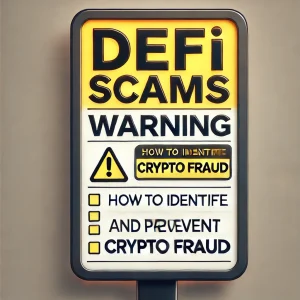As cryptocurrencies continue gaining ground in 2025, more and more people are looking for ways to actually use Bitcoin in daily life. Bitcoin debit cards are becoming a popular tool — they allow users to convert BTC into fiat currency and spend it almost anywhere. But with so many options out there, picking the right card can be confusing.
This article takes you through the best Bitcoin debit cards of 2025. We’ll compare their fees, features, supported regions, and use cases based on the latest data from the US and Europe. We’ll also give you practical tips on how to choose, and when it makes sense to use (or not use) one.
Why Use a Bitcoin Debit Card?
You might wonder, “Why not just use a regular crypto wallet or exchange?” Well, here’s where Bitcoin debit cards shine:
- Instant conversion: Your crypto is automatically converted into fiat (USD, EUR, GBP, etc.) when you make a purchase.
- Widely accepted: These cards run on Visa or Mastercard, so you can use them almost anywhere.
- ATM access: Many let you withdraw cash directly from ATMs.
- Rewards and cashback: Some cards offer up to 5% cashback in crypto.
Bitcoin debit cards are especially useful for frequent travelers, freelancers earning crypto, or anyone who wants to spend Bitcoin like cash.
Top Bitcoin Debit Cards of 2025 (Based on US & EU Data)
Here’s a breakdown of the top players this year, updated with real data and user feedback:
| Card | Key Features | Fees | Supported Regions | Pros | Cons |
|---|---|---|---|---|---|
| Coinbase Card | Linked to your Coinbase account, easy to manage via app | 2.49% transaction fee | US, UK, EU | – Simple integration with Coinbase – User-friendly app – Wide accessibility | – High transaction fees – Limited to select regions |
| Binance Card | Up to 8% cashback, supports multiple cryptos | 0.9% per transaction | EEA countries | – High cashback rewards – Supports many cryptos – Low transaction fees | – Limited to EEA regions – Requires Binance account |
| Crypto.com Card | Free Spotify & Netflix (based on CRO stake) | Tiered fees, staking required | Worldwide (excl. US) | – Free subscriptions for popular services – Extensive rewards program | – Staking requirement for benefits – Not available in US |
| Wirex Card | Supports BTC, ETH, LTC; in-app currency exchange | No monthly fees | UK, EEA, Asia-Pacific | – No monthly fees – Supports multiple cryptocurrencies – Easy to use app | – Limited to specific regions – Currency exchange fees in-app |
| Bybit Card | Instant conversion, linked to Bybit spot wallet | Transparent fees | EU/UK (expanding globally) | – Instant crypto conversion – Transparent fee structure – Expanding global reach | – Limited regions currently – Requires Bybit account |
| Kraken Card (expected launch Q3 2025) | Integration with Kraken Pro trading, provides access to trading features | TBD | TBD | – Integration with Kraken Pro – Great for active traders | – Expected launch date uncertain – Limited regional availability |
Note: Always check each platform’s website for the most current regional availability and fee updates.
How to Choose the Right Bitcoin Debit Card?
Here’s how I usually evaluate whether a Bitcoin debit card is worth it:
1. What crypto assets are supported?
If you’re holding altcoins like ETH or SOL, you’ll want a card that supports more than just BTC.
2. How much are the fees — really?
Watch out for hidden charges: transaction fees, ATM withdrawal fees, and monthly maintenance fees.
3. Are there rewards or cashback?
If you’re using your card regularly, cashback (in BTC or native tokens) can be a big bonus.
4. Where are you based?
Some cards like Binance Card are not available in the US. Others require local verification.
5. Is staking required?
Crypto.com, for example, offers great perks — but only if you lock up a significant amount of CRO.
Real-World Example: Coinbase Card for Freelancers
Let’s say you’re a freelancer in the US and you get paid in BTC via Coinbase. With the Coinbase Card, you can spend directly from your BTC balance, and monitor everything in one app. It’s great for convenience, though the 2.49% fee on each transaction can add up fast — so it’s best used for occasional, not daily, purchases.
FAQ: Common Questions About Bitcoin Debit Cards
Are Bitcoin debit cards legal in the US and Europe?
Yes. In most jurisdictions, they’re legal and regulated through partnerships with licensed financial institutions.
Do these cards report to tax authorities?
In many cases, yes — especially if they’re linked to a major exchange like Coinbase or Binance. Be sure to check your local tax laws.
Can I use these cards at any store?
As long as the store accepts Visa or Mastercard, you should be good. Some cards also work with Apple Pay or Google Pay.
What happens if Bitcoin’s price crashes?
If you keep crypto on the card’s linked wallet, the value will fluctuate. Some cards offer a “lock rate” or auto-convert option to minimize risk.
Our Take: When You Should and Shouldn’t Use These Cards
Bitcoin debit cards are awesome for:
- Spending crypto casually without going through an exchange
- Frequent travelers who want easy access to crypto funds
- Crypto-native users who get paid in BTC or ETH
But they might not be ideal for:
- Daily purchases if the fees are too high
- HODLers who don’t want to sell their BTC
- Privacy-focused users, since most require KYC
Are They Worth It in 2025?
Absolutely — if you pick the right one for your lifestyle. The market is maturing fast, and more user-friendly, lower-fee options are launching every quarter. Whether you’re using Bitcoin to buy coffee, pay freelancers, or travel the world — debit cards are bridging the gap between crypto and real-world spending.
Just remember: not all cards are created equal. Pick one based on your region, habits, and crypto portfolio.
Have you tried a Bitcoin debit card? Which one do you prefer, and why? Drop a comment below — I’d love to hear your experience. And if you found this guide helpful, feel free to share it with your crypto-curious friends!







